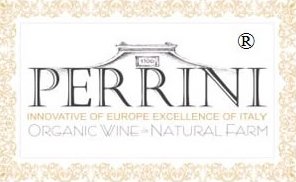



Perrini® Organic Wine in Natural Farm

Apulia, Italy
October 2021
Growing perennial crops
Agriculture/Growers
Australia,
Belgium,
Canada,
Germany,
Italy,
Japan,
Switzerland,
United Kingdom,
United States
Perrini Organic Wine in Natural Farm is an artisanal planet-friend company that respects biodiversity, environment and health. Perrini Organic Wine in Natural Farm research and select the endangered varieties, it carry on tests with ancient and traditional methods, it research the ethics of quality by its authentic, original and excellent products. Located in a Natural Park, with 30 years of experience and professionalism, it produces since origin Natural High Quality Vegetarian Organic Certified Wines whose production is carefully followed at each stage. Perrini Organic Wine in Natural Farm is a company certified B-Corp Social and Environmental Sustainability, Organic ICEA, NOP to U.S.A., COR to Canadian, BIOSUISSE to Switzerland, JAS to Japan, Puglia Quality, etc. It awarded for Ethics, Quality and Innovation in the world . It is Ambassador in the world of artisanal Made in Italy culture. Perrini Organic Wine in Natural Farm is also an ’’Educational Farm of Puglia’’, and it is a certified centre of training experiences, with registered trademark and qualified staff. Perrini is a craftsmanship, authentic, inimitable, good and healthy product!
Overall B Impact Score
Governance 4.9
Governance evaluates a company's overall mission, engagement around its social/environmental impact, ethics, and transparency. This section also evaluates the ability of a company to protect their mission and formally consider stakeholders in decision making through their corporate structure (e.g. benefit corporation) or corporate governing documents.
What is this? A company with an Impact Business Model is intentionally designed to create a specific positive outcome for one of its stakeholders - such as workers, community, environment, or customers.
Governance 4.9
Governance evaluates a company's overall mission, engagement around its social/environmental impact, ethics, and transparency. This section also evaluates the ability of a company to protect their mission and formally consider stakeholders in decision making through their corporate structure (e.g. benefit corporation) or corporate governing documents.
What is this? A company with an Impact Business Model is intentionally designed to create a specific positive outcome for one of its stakeholders - such as workers, community, environment, or customers.
Workers 13.7
Workers evaluates a company’s contributions to its employees’ financial security, health & safety, wellness, career development, and engagement & satisfaction. In addition, this section recognizes business models designed to benefit workers, such as companies that are at least 40% owned by non-executive employees and those that have workforce development programs to support individuals with barriers to employment.
Community 19.9
Community evaluates a company’s engagement with and impact on the communities in which it operates, hires from, and sources from. Topics include diversity, equity & inclusion, economic impact, civic engagement, charitable giving, and supply chain management. In addition, this section recognizes business models that are designed to address specific community-oriented problems, such as poverty alleviation through fair trade sourcing or distribution via microenterprises, producer cooperative models, locally focused economic development, and formal charitable giving commitments.
Environment 42.0
Environment evaluates a company’s overall environmental management practices as well as its impact on the air, climate, water, land, and biodiversity. This includes the direct impact of a company’s operations and, when applicable its supply chain and distribution channels. This section also recognizes companies with environmentally innovative production processes and those that sell products or services that have a positive environmental impact. Some examples might include products and services that create renewable energy, reduce consumption or waste, conserve land or wildlife, provide less toxic alternatives to the market, or educate people about environmental problems.
What is this? A company with an Impact Business Model is intentionally designed to create a specific positive outcome for one of its stakeholders - such as workers, community, environment, or customers.
Customers 3.4
Customers evaluates a company’s stewardship of its customers through the quality of its products and services, ethical marketing, data privacy and security, and feedback channels. In addition, this section recognizes products or services that are designed to address a particular social problem for or through its customers, such as health or educational products, arts & media products, serving underserved customers/clients, and services that improve the social impact of other businesses or organizations.